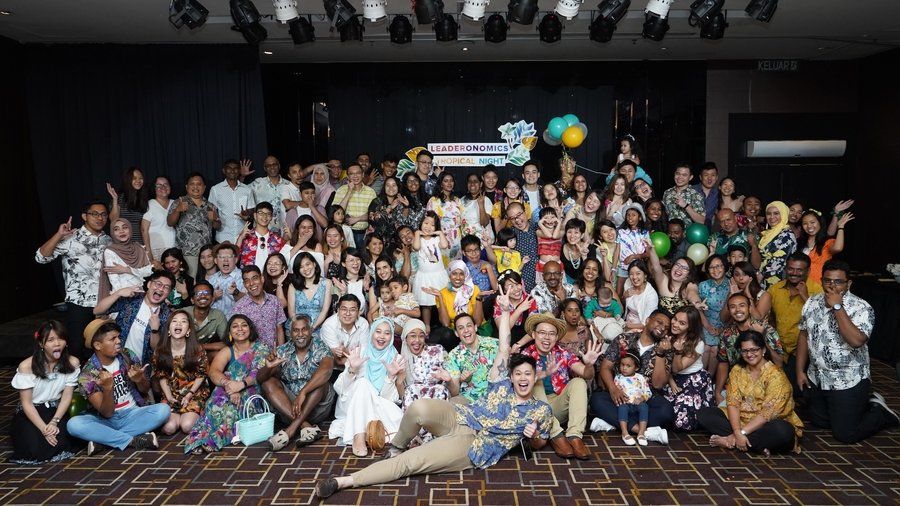The Many Facets Of The Immortal Games We Play

By SASHE KANAPATHI
I learnt how to play chess at a very early age. An uncle of mine who was very good at it taught me, and one of my early goals in life was to be able to beat him at it.
But the game soon became more than that goal. I read all the books, won some school tournaments, and even became a collector of chess sets.
I was never great at it as there were always other interests that competed for time with it. But it became a passion of sorts; a game that I still play to this day, with friends, online.
The Immortal Game doesn’t refer to the game of chess itself.
But, those of you who are fans of the game would recognise it as the title given to a specific set of great games in chess history.
Games that are used as reference materials to get a glimpse of the mindsets of various chess masters, and as a tool to learn strategy.
There are many of these identified Immortal Games, and each teaches you something new.
My Immortal Game
I love the game of chess for that simple reason: every game I play teaches me something new. It challenges me to think differently and to continuously adapt and learn.
This has also been the story of my life.
Starting out as an electronics engineer, I’ve worked the ropes as a firmware engineer, software programmer, automation engineer, and project manager.
At the same time, I was moving through companies in a diverse set of industries, from data storage, to finance software, to solar manufacturing, to supply chain software. Yet, I did not feel like a stranger in any one of those jobs or industries.
It’s because each gave me an opportunity to leverage my strengths, and with the right agility, I was able to learn how to navigate each new environment; to understand new tools and techniques, and languages too.
This continuous learning journey has defined my life; every career move, like a new Immortal Game, for me to experience and learn from.
I learnt not only from the experience of a new industry or a new job role, but I learnt from the people around me. I learnt that success was not dictated by functional competencies, but by leadership ones.
As I rose through the career ladder, it was almost impossible for me to keep up with the tech changes happening around me.
With more business responsibilities, there was less time to be hands on. With new ideas and techniques coming in with new people I hired, it was harder to remain ‘in the know’ of all technical decisions.
I still remember the first time, as a manager, I had to admit that I did not know how to solve a tech problem. That was a difficult day for me, to admit to myself that I was no longer the subject matter expert and that I needed to instead learn how to leverage other people’s skills effectively.
Yet, my learning didn’t stop; I just learnt things at a different level, about business, about leadership, about culture.
I learnt many lessons.
I had many Immortal Games to analyse. They led me to one conclusion: it’s about leadership.

Sashe Kanapathi
Journeying with Leaderonomics
I soon quickly dropped my successful tech career and looked for a way to be a part of the leadership development arena. It’s what I knew then, and know now to be the game-changer.
I’m very appreciative of the open-minded leaders at Leaderonomics who were open to the idea of a non-human resource person joining them in a leadership position. It only re-affirmed my belief that it’s not just functional competencies that are needed for success.
I’ve spent the last two years at Leaderonomics understanding everything related to the learning ecosystem – from understanding the role of assessments, to the effectiveness of coaching, to accelerating talent, to the importance of employee engagement.
I know this is important work that we do, and it makes a real difference for the people we work with. Perhaps not everyone, but for those whom it does make a difference, it’s a significant and important one.
This year, I’ve taken on a new role to head up our digital initiatives. It almost feels like a full circle as my tech background has now intersected with my leadership passion.
At Leaderonomics Digital, we are now striving to accelerate the offerings of the rest of our business units. to bring the ageing world of Learning Consultancy into the next level of effectiveness.
By leveraging technology, I know we will be able to create many more learning opportunities that are continuous and effective.
Looking forward
To me, the Immortal Games identified in chess are not about the chess masters that played them. It’s about the learning opportunities provided for everyone else.
In my career, my learning opportunities came through elongated experiences or unplanned situations, or through incidental interventions. They were rarely planned, efficient, intentional or at the right moment of need.
With the assistance of technology, we believe we can correct that and accelerate everything we do in the Leaderonomics ecosystem; and ultimately, to develop leaders and transform the nation.
The Immortal Game is a continuous game of learning, unlearning, and relearning. Doing it in the most efficient and effective way will continue to drive us here at Leaderonomics.
Prefer an e-mag reading experience? This article is also available in our 24th November, 2018 digital issue. Access our digital issues here.
Business
Sashe is certain that his 18-year early career in IT was about leadership and not technology. He has spent the last 8 years redefining what that means as a HR consultant and learning leader with Leaderonomics.





